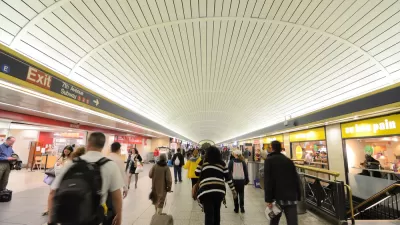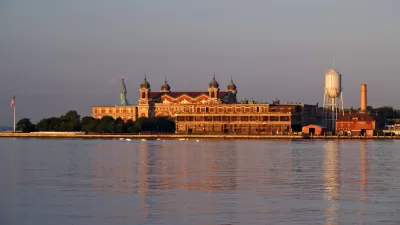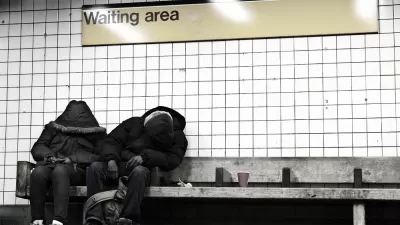Because of an acute shortage in accommodations for the city's homeless, NYC's Department of Homeless Services (DHS) is willing to pay exorbitant sums to house the needy in privately owned buildings. The practice is not without its critics.
Joseph Berger spotlights the DHS's lucrative practice of subsidizing the private operational of homeless shelters, which has persuaded landlords such as Alan Lapes, who owns or leases about 20 of the 231 shelters citywide, to convert their buildings (often one room at a time) into shelters.
"With the number of homeless people rising to 30-year record levels — over 47,216 people as of early this month, 20,000 of them children — the city has struggled to find landlords willing to accommodate a population that includes people with mental health and substance abuse problems. So the city has resorted to housing adults in single-room-occupancy buildings originally designed for long-term residents who pay stabilized rents," explains Berger.
"Most of the other shelters and residences are run by the city or by nonprofit agencies, but [Lapes's] operation is profit-making, prompting criticism from advocates for the homeless and elected officials."
"Mr. Lapes has lately stirred anger for his contracts through the Department of Homeless Services. More than 200 residents and elected officials packed a community meeting last week to express outrage at the transformation of two buildings he owns on West 95th Street into homeless shelters, without the usual public and legislative scrutiny."
“The city needs to make sure there’s affordable housing instead of waiting for shysters to come forward to make thousands of dollars off these poor unfortunate people,” State Assemblywoman Linda B. Rosenthal, a Manhattan Democrat, said at the meeting, promising to push for reforms. “Getting rid of the profit motive will reduce some of the bad actors.”
FULL STORY: For Some Landlords, Real Money in the Homeless

Alabama: Trump Terminates Settlements for Black Communities Harmed By Raw Sewage
Trump deemed the landmark civil rights agreement “illegal DEI and environmental justice policy.”

Planetizen Federal Action Tracker
A weekly monitor of how Trump’s orders and actions are impacting planners and planning in America.

The 120 Year Old Tiny Home Villages That Sheltered San Francisco’s Earthquake Refugees
More than a century ago, San Francisco mobilized to house thousands of residents displaced by the 1906 earthquake. Could their strategy offer a model for the present?

Ken Jennings Launches Transit Web Series
The Jeopardy champ wants you to ride public transit.

BLM To Rescind Public Lands Rule
The change will downgrade conservation, once again putting federal land at risk for mining and other extractive uses.

Indy Neighborhood Group Builds Temporary Multi-Use Path
Community members, aided in part by funding from the city, repurposed a vehicle lane to create a protected bike and pedestrian path for the summer season.
Urban Design for Planners 1: Software Tools
This six-course series explores essential urban design concepts using open source software and equips planners with the tools they need to participate fully in the urban design process.
Planning for Universal Design
Learn the tools for implementing Universal Design in planning regulations.
Clanton & Associates, Inc.
Jessamine County Fiscal Court
Institute for Housing and Urban Development Studies (IHS)
City of Grandview
Harvard GSD Executive Education
Toledo-Lucas County Plan Commissions
Salt Lake City
NYU Wagner Graduate School of Public Service





























